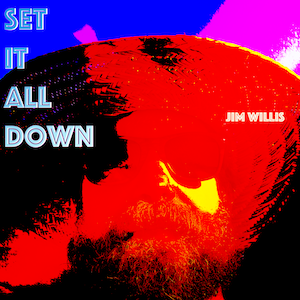June 5, 1998
After seeing this movie two or three times I decided it was finally time to read the book. I’d without hesitation suggest that if you haven’t already seen the movie or read the book you do one or the other or preferably both as soon as possible.
Lately I’ve been under a modified grass is greener on the other side spell. Only the grass isn’t greener it just more real and it’s not on the other side, it’s anywhere that is strange or exotic or different. So I’ve had this nagging notion that anything that is unfamiliar to me is more real than the world I live in everyday.
I don’t think I’m alone in this mis-guidedness. I think a lot of times people can easily fall into the trap of seeing how bland, homogenized and seemingly boring life in 1990’s America can be. As such, any cultural blip that appears as an anomaly on our radar is instantly more exciting than where we are right now. That yearning makes us saturate our own world in diversity: Brazilian music (Tropicalisimo!) instead of Stone Temple Pilots, Zen replaces Catholicism or whatever you were raised up to be not because it’s better but because it’s different, instead of American meals like meatloaf and apple pie we hover over exotic recipes for Moroccan Ras el Hanout or ancient South Indian chats.
An infant lying in a crib, if presented with two images– one simple with few colors and shapes and the other more complex with many colors and shapes and designs—will gravitate and show more interest in the complex than the simple. Is that why a new palette of spices makes us want to travel thousands of miles to taste strange fruit from its native tree?
In any event, I’ve been aching for the exotic lately. Sometimes it seems more real to me than McDonalds and Wal-Mart and marketing scams like Beanie Babies and Godzilla. But it’s not. It’s not any more real. I pulled out of my driveway and over the hood of my car looked out over Ohio. A Moroccan native would look at all this mid western blandness and find it as strange and exotic as I would his Algerian Bazaar. It’s all real. The exotic is only exotic and strange in the eye of the beholder. But like an infant lying on his back in a crib I’m pretty sure I’ll keep grasping for the complex and strange instead of the simple. It just keeps things interesting and keeps me from not paying attention.
So but anyway, that’s what The Sheltering Sky sort of covers. It answers the question: What happens when we grasp too much, too far for the complex and strange?
Lines I found particularly cool:
“I wonder if after all I’m a coward?” he thought. Fear spoke; he listened and let it persuade—the classical procedure. P131
“Before I was twenty, I mean, I used to think that life was a thing that kept gaining impetus. It would get richer and deeper each year. You kept learning more, getting wiser, having more insight, going further into the truth—” She hesitated.
Port responds: “And now you know it’s not like that. Right? It’s more like smoking a cigarette. The first few puffs it tastes wonderful, and you don’t even think of its ever being used up. Then you begin taking it for granted. Suddenly you realize it’s nearly burned down to the end. And that’s when your conscious of the bitter taste.” P 165
How many times his friends, envying him his life, had said to him: “Your life is so simple.” “Your life seems always to go in a straight line.” Whenever they had said the words he heard in them an implicit reproach: it is not difficult to build a straight road on a treeless plain. He felt that what they really meant to say was: “You have chosen the easiest terrain.” But if they elected to place obstacles in their own way—and so clearly they did, encumbering themselves with every sort of unnecessary allegiance—that was no reason why they should object to his having simplified his life. So it was with a certain annoyance that he would say: “Everyone makes the life he wants. Right?” as though there were nothing further to be said. P198
“death is always on the way, but the fact that you don’t know when it will arrive seems to take away from the finiteness of life. It’s that terrible precision that we hate so much. But because we don’t know, we get to think of life as an inexhaustible well. Yet everything happens only a certain number of times a very small number, really. How many more times will you remember a certain afternoon of your childhood, some afternoon that’s so deeply a part of your being that you can’t even conceive of your life without it? Perhaps four or five times more. Perhaps not even that. How many more times will you watch the full moon rise? Perhaps twenty. And yet it all seems limitless.” P238
Note:
I just watched the movie again last night and it occurs to me that it’s easy to miss the point of the book if you only see the movie. The movie leaves out the story of the three sisters who go to have tea in the Sahara (yes, The Police wrote a song about this story). The finally get to the Sahara to have their tea but they can’t agree on which dune to sit on while they drink so they keep saying, “oh this next dune looks much better,” then upon arriving at the peak of that particular dune they’d point and say, “well, that next one looks much better than this one,” and they’d move on indefinitely—never satisfied with their particular dune, always pushing on across the Sahara to the next, bigger and better dune– until they die without ever stopping to have their tea.

